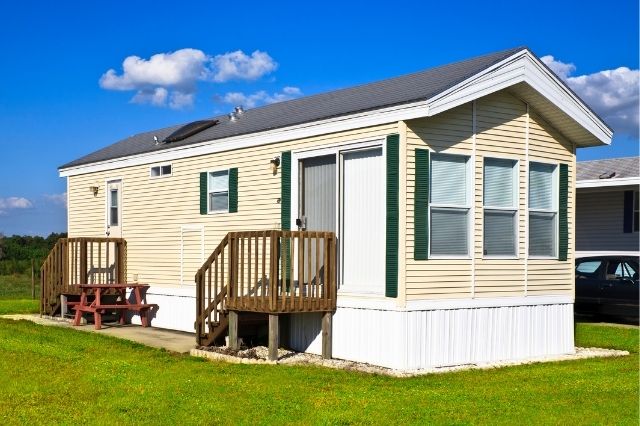Living in coastal homes has its perks, such as easy access to stunning beaches, fresh seafood, and picturesque walks, just to name a few. However, despite all the excellent benefits, it’s essential that you also take a look at and prepare for the side effects of coastal living, including the risk of damage to your home due to coastal erosion, flooding, and wear and tear from harsh weather conditions.
Your precious home is located in a unique neighborhood and therefore is at the risk of very specific issues that an inland home does not. Hence, as a coastal homeowner, it is crucial that you consider a vastly different insurance option that will protect your cherished property—coastal insurance.
The traditional home insurance policy is not the easiest thing to wrap your head around, and the coastal home coverage is even less straightforward. For this reason, coastal homeowners are always in need of assistance to better understand this complex coverage.
To help you out, below listed is simple yet detailed information that will help you be more knowledgeable about coastal insurance.
Why Does Your Coastal Property Need Additional Insurance?
While beautiful, coastal homes are extremely vulnerable to storms and are therefore more prone to flooding, water, and severe windstorm damage. Consequently, they require additional insurance that goes beyond what comes with a standard homeowner’s coverage.
Coastal insurance typically includes additional coverage against harsh weather like high winds, hurricanes, and named storms. They also feature separate deductible types.

Furthermore, depending on how far your home is from the coast, you might or might not need additional insurance. Though different insurance carriers have different requirements, most of them require additional coverage only if the homes are located 3 miles or less from the coast.
For this reason, it is essential that you work with an insurance agent who thoroughly understands the complicated coastal insurance. You will often be able to save money by going for an alternative option that real estate agents with less coastal insurance knowledge might overlook.
How Does Coastal Insurance Differ from A Traditional Home Insurance Policy?
Homes situated in coastal areas have significant exposures, which is why they require additional coverage than with a traditional home insurance policy. The primary difference between a standard home insurance deductible and a coastal home insurance deductible is that they are typically referred to as named-storm deductibles, wind deductibles, or hurricane deductibles.
Here are two examples:
- Consider your home is located 10 miles away from the coast and that you have a traditional home insurance policy without wind deductible. If a strong wind knocks a tree down and it falls on your home, your regular home insurance deductible will apply for your claim.
- On the other hand, if the same situation happens but you live within three miles of the coast, your wind deductible will apply instead of your regular home insurance deductible.
Does that sound complicated? If yes, then even more complicated is the percentage deductible.
Unlike a standard homeowner’s policy that is written with a dollar deductible for any weather-related disasters, the coastal home insurance policy includes a very complicated percentage deductible.
Here’s how the percentage deductible works in comparison to a traditional policy.
- If you live three miles away from the coast, you are considered an inland homeowner and have a standard deductible, say of $1,000, in the event of a claim. Therefore you would be responsible for paying $1,000 out of pocket before your insurance policy kicks in.
- On the contrary, if you live within three miles of the coast, you are considered a coastal homeowner, and your insurance policy includes a percentage deductible based on your home’s total insured value. For example, if your home is insured for $600,000 and you have a 6 percent deductible, you’ll have to pay the first $36,000 out of pocket as the homeowner.
How Do the Wind, Named-Storm, And Hurricane Deductible Differ?
As stated earlier, three deductibles are available for coastal homeowners that a standard home insurance policy doesn’t have. They are called the hurricane, wind, and named-storm deductibles. While these deductibles sound similar, they are very different.
- A wind deductible applies to damages caused by any kind of wind.
- A hurricane deductible applies solely to damages caused by a hurricane.
- A named-storm deductible applies to damages caused by a named-storm.
Now, the type deductible that applies to you will depend on two factors— (1) the regulations put forward by the state your home is located in, and (2) your house’s proximity to water, including pond, lake, stream, or ocean.
It’s essential to keep in mind that each state has a unique definition or classification for a hurricane. Additionally, the deductible also varies based on your location and the insurance carrier. For example, a home in Nantucket may have a deductible of 3 percent, whereas a home in Marion could have a 6 percent deductible.

Should Coastal Homeowners Consider Any Additional Insurance Coverages?
There are three critical insurance coverages every coastal homeowner must consider in addition to the coastal insurance.
1. Ordinance & Law
This specific insurance covers the cost required to rebuild or upgrade a home that has been destroyed to make sure it meets the most recent building codes. To know whether this coverage is right for you, try answering the following questions.
- How old is your home?
- Will you be able to afford the cost of reconstruction if your home has to be rebuilt from its original foundation?
- Is your house located in a historical district like areas along the water in Plymouth, MA or downtown Portsmouth, NH? If so, could you afford the cost of rebuilding your home back to its original historically approved condition?
Simply put, the ordinance and law coverage would be a smart investment if you live in a home built before 1970 or answered “no” to the last two questions above.
In the event of a disaster, ordinance and law will cover the costs of upgrading your home to ensure it meets the current building codes.
2. Loss of Use
Loss of use will provide you and your family a temporary housing facility in the event of a significant loss that requires you to rebuild your home. Nevertheless, you should note that the ‘temporary housing’ carried by individual insurances will vary from one insurance company to another.
For instance, some of the premier insurance partners will typically help you rent a coastal property similar to your home for your claims process’ duration. On the other hand, other insurance carriers may provide a hotel or mobile housing solution as temporary housing.

3. Flood Insurance
Whether your house is located close to water or not, a standard house insurance policy doesn’t include coverage for flooding. Heavy rains, rapidly melting snow, and severe coastal storms—the top three reasons for flooding in the US has increased the frequency of flooding in coastal communities like New England. Hence, purchasing flood insurance should really be on the top of the priority list for all homeowners.
Have Questions? Ask Liz!
Your real estate agent is the best source of information about the local community and real estate topics. Give Liz J. Holterhaus a call today at (252) 202-2156 to learn more about local areas, discuss selling a house, or tour available homes for sale.




